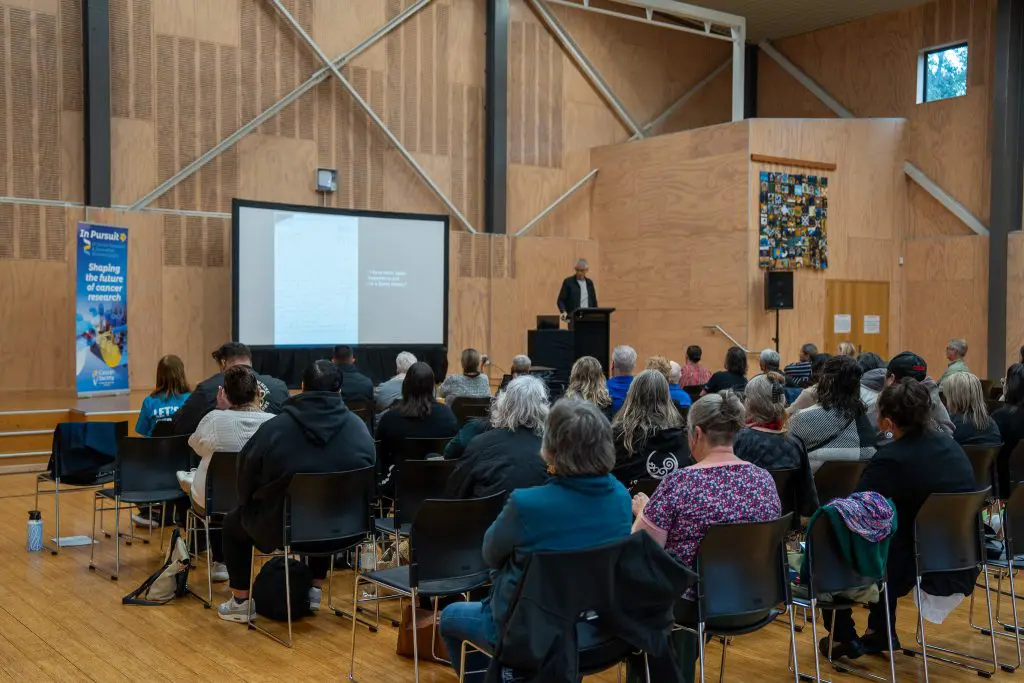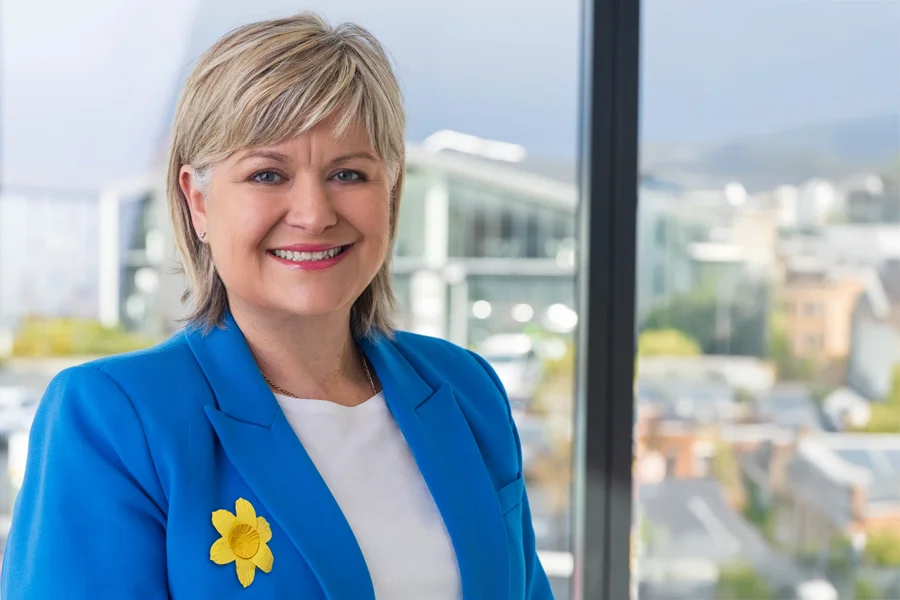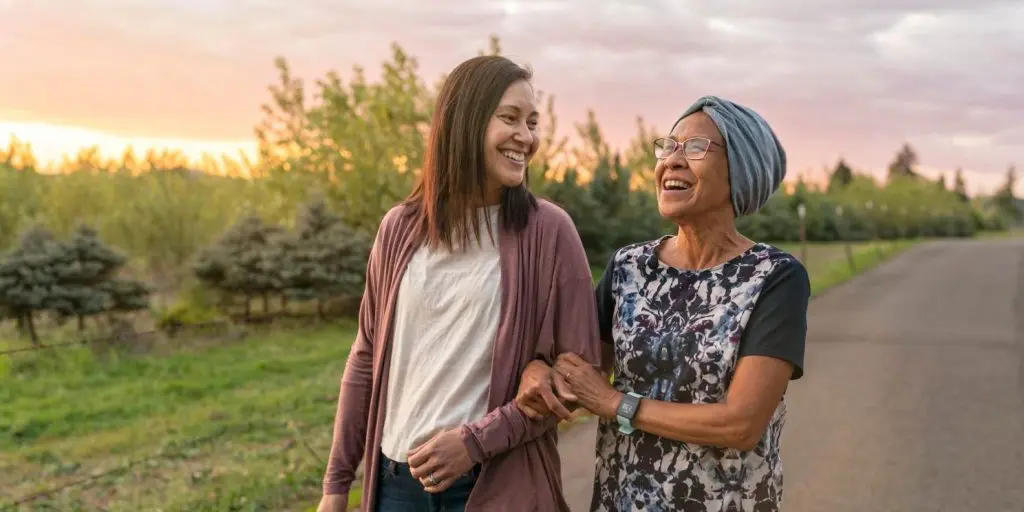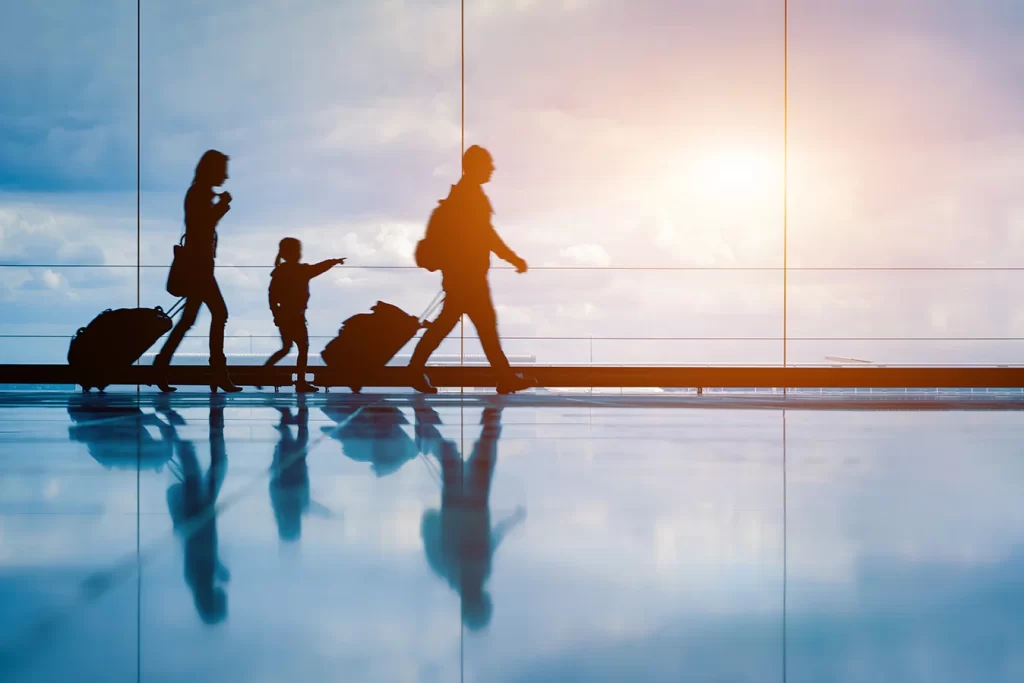
New Zealanders who travel for CAR T-cell therapy
25 March 2025
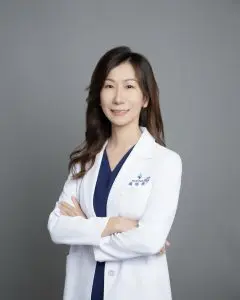
As New Zealand’s cancer outcomes linger behind those of other OECD countries, more and more New Zealanders are taking advantage of the US2.37 billion investment China has made in the development of CAR T-cell therapies since 2013.
Dr Lily Zhou, who travelled to Christchurch to speak at the Cancer Society’s inaugural conference, In Pursuit, works at Shanghai Sino United Hospital. She has offered free consultations to more than 10 New Zealanders who have reached out for treatment. Seven of them have been treated, and some are waiting for the right time to commence treatment.
All her consultations were with adults aged from 37 to 72. They were seeking treatment for Lymphoma, including diffuse large B cell lymphoma, Mantle cell lymphoma, Primary mediastinal lymphoma, Central nervous B cell lymphoma, and Multiple myeloma.
She firmly believes CAR T-cell therapy is a game changer in cancer treatments.
“There have been some remarkable responses in blood cancers such as myeloma, lymphoma and leukemia.
“For solid tumour, it (CAR T-cell) is still in the early stages in the trial setting, but very promising for the future.”
Dr Zhou also said CAR T-cell therapy has also shown promising outcomes in other areas such as autoimmune disease and anti-aging.
One of her success stories, New Zealander Andrew White, knows only too well the benefits of CAR T-cell therapy, and knows he’s probably still here and well because of it.
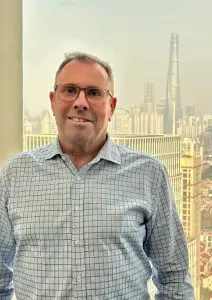
For Andrew, a sore back that wouldn’t heal in 2008 was the first step in a 16-year journey that saw him undergo two stem cell transplants in New Zealand and CAR T-cell therapy in Shanghai.
He said his lingering sore back, which turned out to be a compression fracture, was the first indication that something more serious might be going on. Eventually, he was diagnosed with non-secretory myeloma – a rare cancer of plasma cells in the bone marrow. Only 3% of myeloma cases are non-secretory and detecting the disease is not easy. Unlike other myelomas, it doesn’t show up in your blood.
Andrew said it was a relief to know finally what was going on.
“I was living overseas at the time, in Shanghai for work, and the specialists there suggested I go down to Hong Kong to get further tests done.
“I had a compression fracture, and the specialist suspected it might be something else causing it. I had a vertebroplasty done to stabilise the fractured vertebra and a number of tests, and it was after this that they made the diagnosis. It took quite a while.”
Following this procedure, myeloma treatment followed. Opting to return to New Zealand to be close to family, he was successfully put on Velcade – a targeted drug therapy which blocks enzymes inside cancer cells, leading to the cell’s death. Unlike traditional chemotherapy, it targets only cancer cells and not healthy ones. In mid-2009, an autologous stem cell transplant followed with the outcome of complete response.
Andrew stayed in remission with no treatment until 2014, when blood tests for free-light chains indicated that the disease was making a comeback.
“I was working in Europe, so the treatment options were good. I went back on Velcade, and they added Carfilzomib (an inhibitor drug), a new treatment not available in New Zealand then. And they added Lenalidomide (drug to slow tumour growth) which may have just become available in New Zealand.”
“It was fortuitous for me to be working in different locations where different options were available. That worked well for me. At the same time, I always kept in touch with my New Zealand specialists and caught up with them when I was home. I tested my thinking on them.”
“The doctor in Germany noted during one of our conversations that it’s often good to stay busy. He was supportive of me continuing with a busy work and personal life, so long as I also “listened to my body”. While being treated, I was able to keep up a normal work schedule, which included travel. It’s a personal thing, though, and it depends on the side effects you experience. For me I had very few.
“Being busy helps to keep your mind off it. You’ve got some normality in your life, and that helped me.”
Andrew chose to follow up the treatments with another stem cell transplant and flew home for the procedure because enough cells were left over from his first treatment and were in storage in New Zealand.
“I suppose I was in a cycle of being in remission for six or seven years and then the myeloma returned. It was probably getting more aggressive each time.
Andrew was once again in China for work, and in 2022 the free light chains in his blood once again started creeping up and he suffered broken ribs which were later worsened by a bout of pneumonia. He was put on daratumumab in combination with carfilzomib. This treatment regime was successful and part way through 2023 his myeloma was again deemed to be in remission.
Through ongoing conversations with his Shanghai specialist, he was made aware that another relapse within a shorter period of time was a real possibility. Car-T was put forward as an option while he was in biochemical remission. Andrew decided to go ahead and undergo CAR T-cell therapy in Shanghai.
“My treatment went really well, with my specialist and the team around her conducting everything in English. All my reports also came to me in English, often on the same day.
“I was probably in the hospital for about two weeks after the Car-T infusion. Then, it was step-by-step back to work and normality. I had the willpower to do that.
“I guess CAR-T is a lot like the stem cell transplants in some ways. In my case, I felt like I had been hit by a bus for a few days. There’s no pain, but you feel lethargic, maybe have a fever, lose your appetite, and you don’t feel like doing anything.”
Andrew said it was an expensive process, but his wife and family were behind him all the way.
“It was a lot cheaper to get it done in China than in the US, I think that’s why some other Kiwis have come here. The cost and the proximity. It’s a direct flight.”
For now, everything is going well for Andrew. He had the therapy in November 2023, over a year ago, and recent bloods taken show he’s in remission and there are still Car-T cells in his blood.
What the future holds is anyone’s guess and that is why research is so necessary to improve outcomes for people and make treatments more accessible. We’ve already come a long way.
“It would be great if the therapies could be provided in New Zealand,” Andrew said. “It would make it more affordable, but there’s also the emotional support. The value of that can’t be denied.”
Dr Zhou said Andrew is the best proof of how innovative treatment helps people to improve their lives.
“He was diagnosed with myeloma in 2008 – 17years now! Previously, four different lines of treatments, including autologous stem cell transplant, had failed.
“CAR T therapy was received in 2023, with a good response of complete remission for 15 months ever since then and he has maintained a good life quality.
“I’m very happy to see him doing fantastically well now, back to normal life and diligent work. It was also my great honor to get the chance to help him.
Her wish is that telling his story will inspire more patients who have lost hope and encourage them to look at CART therapy.
Dr Zhou said CAR T-cell therapy in China has seen significant advancements, particularly since the early 2010s. Chinese researchers have developed several therapies with notable success in treating hematological cancers like lymphoma, leukemia and multiple myeloma.
The first CAR T-cell therapy was approved in 2021 in China, and five other products have been granted for clinical application since. By 2025, these innovative therapies – Yescarta / Carteyva / Fucaso /CNCT19/ Zevor-cel/ Carvykti\Chimeric antigen receptor (CAR) T-cell therapies – had achieved notable success in treating hematological malignancies in China.
“Over the past decade, the landscape has evolved significantly. CAR T-cell clinical trials were instigated in 2013, and by 2017, China had become home to the largest number of related trials. By 2021, funding for cell therapy companies reached a cumulative US$2.37 billion, alongside a marked increase in clinical trials and basic research.”
Dr Zhou said this surge could be attributed to several factors, including strong government support, substantial capital investment, high patient demand, a distinctive healthcare system, and the dedication of Chinese physicians and scientists.
About Lily Zhou
Dr Zhou has been working as a hematologist for more than twenty years and participated in the clinical trial of BCMA CAR-T seven years ago.
Her interest in CAR-T cells was driven by a desire to provide her patients with a better outcome. She said for many years, the traditional treatments of blood cancers were chemotherapy and radiation therapy and although these methods help to improve the condition, most patients still had a poor prognosis.
“In recent years, immunotherapy has great potential in tumor treatment. Chimeric antigen receptor T-cell immunotherapy (CAR-T) uses the patient’s own T cells to better recognize and attack cancer cells, which helps to produce deeper and longer remission with remarkably good results in the treatment of hematological tumors.
“In 2017, the FDA approved the first CAR-T for the treatment of B-cell acute lymphoblastic leukemia (ALL). In October of the same year, the FDA approved CAR-T to treat B-cell lymphoma. In order to improve and enhance the therapeutic effect, CAR-T has become a research focus in recent years.
“As a hematologist, I`m very happy to help patients with leading technology and revolutionary promising treatment for blood cancers, and China has the most CAR T-cell therapy activities in research and clinical application.”
Dr Zhou has been working in the hematology area since 2004 with an MD & PhD, two- years postdoctoral scholarship in University of California in San Francisco, mainly focusing on the individualized therapy against myeloma. She explored the mechanisms of relapse and the combination of targeted/immune/cell therapy to improve treatment in the hematology area.
Currently, she is working with different centers of cell therapy with commercialised CART drugs and clinical trials.
Donate NOW

